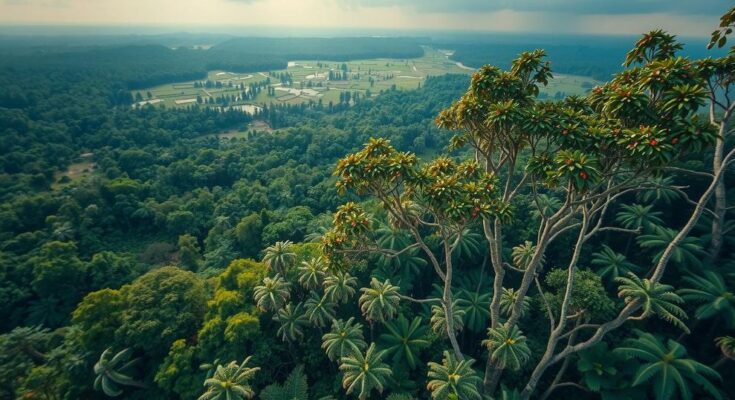A modelling study predicts that by 2100, up to 94% of Amazonian land might become unsuitable for the Brazil nut tree due to climate change. The study based its findings on four different climate scenarios, highlighting the serious implications for the tree’s ecological role and the economic livelihood of communities that rely on it.
A recent modelling study has indicated that climate change may render up to 94% of the land in the Amazon Basin unsuitable for the Brazil nut tree by the year 2100. This assessment is based on simulations that incorporated four distinct climate scenarios, emphasizing the potential impacts of environmental alterations on this vital species. The Brazil nut tree is not only significant for its economic value but also plays a crucial role in maintaining the biodiversity and ecological balance within the Amazon rainforest.
The Brazil nut tree (Bertholletia excelsa) is a keystone species in the Amazon rainforest, providing essential habitat for numerous forms of wildlife and serving as a source of income for local communities. However, climate change poses a significant threat to its viability and distribution. The modelling study employed various climate scenarios to project future conditions that the Brazil nut tree will face, highlighting the urgency of addressing climate change to preserve this crucial resource and its surrounding ecosystem.
This study underscores the alarming potential for widespread habitat loss for the Brazil nut tree due to ongoing climate change. With the forecast of up to 94% of Amazonian land becoming unsuitable for its growth, it is imperative to consider conservation strategies and climate action initiatives to protect not only this species but also the broader biodiversity of the region. Immediate action is necessary to mitigate the anticipated adverse effects of climate change on this vital ecological asset.
Original Source: www.eurekalert.org




